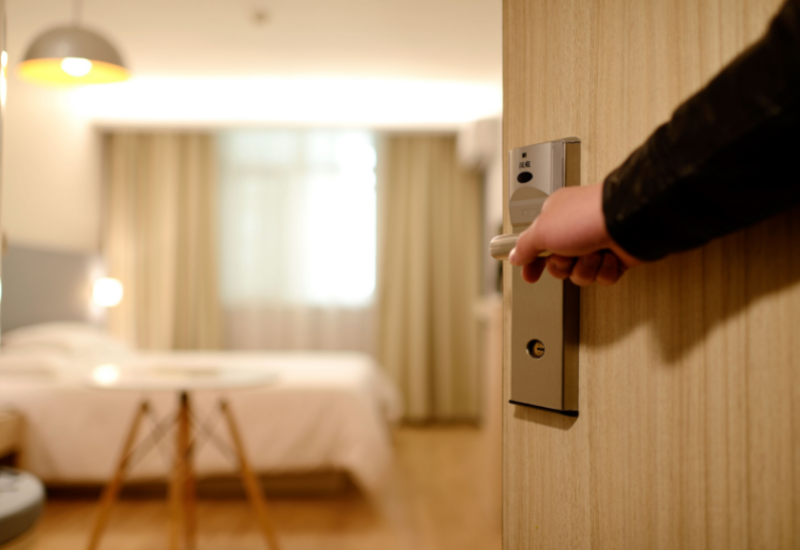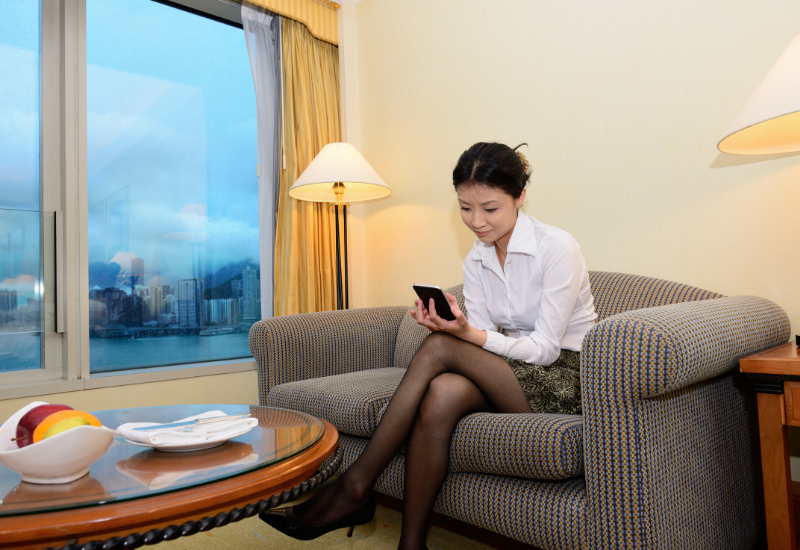Top 12 Hotel Safety Tips Travelers Should Never Ignore
10 November 2011
How do you stay safe in a hotel?
These days, travel is no Sunday picnic. When you finally stumble into the lobby, you may be tired, dirty, and in a hurry to get cleaned up, get some sleep, or accomplish the first item on your travel agenda. Hotel safety may be the last thing on your mind right now.
Unfortunately, no matter where you stay this is no time to let your guard down.
Hotels aren’t inherently less safe than other types of lodging. It’s people that are the unpredictable factors.
See the latest travel myths busted.
No matter where you stay, there are some important strategies that will give you that peace of mind that helps you get the most out of your trip.
The following are the top hotel safety tips recommended by the experts.
Traveling on your own, with kids, or seniors?
If you’re traveling alone, or with children or elderly folks, these tips can be even more important to follow precisely because of their vulnerability.
See our travel safety tips for single parents going abroad with the kids.

Hotel safety at arrival
1. Stay with your luggage – if you walk into the lobby ahead of your luggage, it could be snatched. Keep your luggage nearby too, because if the lobby is busy, enterprising thieves can take advantage of the distraction.
2. Ask for a room that’s not on the ground floor (it’s too easy to break in). Many safety experts recommend staying between the third and sixth floors – where rooms are high enough to avoid easy break-ins, but low enough to be reached by fire engine ladders.
Hotel safety during check-in
3. Most reputable hotels with honest staff know not to give out names or room numbers, but it’s still known to happen. If your room number is compromised (i.e., announced out loud), ask to be given another room. You never know who is listening and your room number is a matter of personal security.
4. Don’t set your credit card on the check-in counter – it’s too easy for a thief to capture the numbers with a good camera. And when it’s handed back to you, be sure it’s your credit card and not someone else’s or a bogus card.
5. Ask for two business cards with the hotel name and address. Place one by the phone in your room. If there is an emergency, and you call for help, you’ll have the name and address of your location. Place the other in your pocket, wallet, or purse (even better, snap a photo of it with your phone). If you have to take a ride-share or get lost, you can show the driver your location and avoid being taken to the wrong hotel.
Hotel safety in your room

6. If a valet or porter has accompanied you to your room, block the door open while you check the room. Look in the closet, in the shower, and behind the curtains before you shut the door or release the person who accompanied you.
7. Check the lock to be sure it’s functioning properly. Make sure that the door has a deadbolt and keep it locked whenever you are in the room.
8. Use a door wedge to further secure the door – especially when you are sleeping or in the shower. Crooks are not always caught and may not have a record, so they sometimes get hired by hotels where they have excellent access to spare room keys. Some criminals have been known to wait until they hear you in the shower before robbing your room or attacking you.
9. Place a flashlight or headlamp by the bead. If there’s an alarm or the electricity goes out, you’ll have the light you need to navigate an unfamiliar building.
See our tips for packing an emergency travel kit.
When you leave
10. Lock the items you won’t be carrying with you, such as your laptop or other electronics, in the room safe. Modern hotels with a safe that lets you select your own combination are safer than those with keys. Don’t leave your passport behind.
11. If the safe in your room doesn’t appear reliable, lock valuables in the hotel safe, but be sure to get a written receipt for your items and ask about the coverage for loss. Most hotels do not accept liability for items left in the guestroom safes but they will for those locked in the hotel safe.
12. If you lose your key or room entry card, report it to the hotel immediately and ask to be moved to another room. You can’t assume you ‘lost’ it – it may have been stolen by someone with malicious intent.
Is it Safe for a Woman to Stay Alone in a Hotel?
More and more people are traveling solo and they have highly rewarding travel experiences. The flipside of solo travel, no matter what your identity is, is safety of course. When you travel with a group of people, your risks are less simply because you have the buffer of others surrounding you, watching the luggage, paying attention to things you might not notice.

In addition to all of the tips above, here are the important tips all solo travelers should follow:
- Notice if someone suspicious (a single person without luggage, for example) follows you onto the elevator. If possible, exit and ask for a porter to accompany you to your room. If it’s not possible to exit in the lobby, get off on a floor that’s not yours and return to the lobby.
- Use the hotel’s main entrance at all times (even if it means valeting the rental car). This helps ensure that staff see you and it gives you the opportunity to ask for an escort if you’re concerned about being followed.
- Check all the locks—doors and windows— every time you enter your room. Simple tip, but effective. If you notice something is unlocked. Leave immediately.
- Leave the ‘do not disturb’ sign on your door and leave a light and/or television on (sound down, of course). All of these things will provide the illusion that someone is in the room when you go out and deters break-ins.
See all the ways solo travelers benefit from travel insurance.
Damian Tysdal is the founder of CoverTrip, and is a licensed agent for travel insurance (MA 1883287). He believes travel insurance should be easier to understand, and started the first travel insurance blog in 2006.
